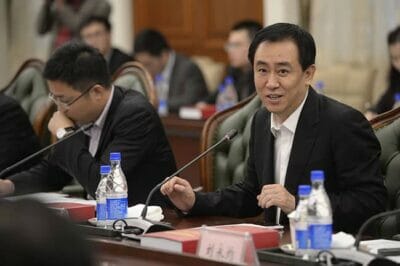
Evergrande’s Xu Jiaying looks ready to jump on the chance for a share sale
Rapidly diversifying Chinese developer Evergrande Real Estate Group cashed in on Asia’s surging stock markets through a $593 million share offering, according to a company announcement to the Hong Kong stock exchange.
The Hong Kong-listed company, which is among China’s 10 largest developers by sales has announced plans in recent years to branch out into bottled water, cooking oil, and plastic surgery resorts.
Now the developer belonging to billionaire Xu Jiaying has added some cash to what is said to be China’s most heavily indebted real estate company, after the company’s share price rose 98 percent in the last three months.
Evergrande’s move to raise more equity financing is the latest in a series of share sales by Chinese developers seeking to take advantage of a record surge in stock prices to add more cash to their balance sheets. The decision to raise money through a share offering was first predicted on Mingtiandi on May 19th.
Selling Shares While the Sun Shines
In the share sale concluded yesterday Evergrande provided a select group of buyers with 820 million shares in its mainland homebuilder for HK$5.67 per share, an 18 percent discount over its closing price of HK$6.92 per share before trading in the stock was halted for the share sale.
In pursuing a share sale this month, Evergrande is following the lead of other Chinese developers such as China Resources Land, Yuzhou Properties, Greenland Group and CIFI Holdings in issuing more equity while share prices are high.
In total those four developers raised the equivalent of $1.74 billion in new cash in the last several weeks via stock offerings.
For Evergrande, which is estimated to be China’s most indebted developer, the goal of raising $600 million makes only a modest dent in its load of loans and other debt instruments.
Mingtiandi spoke with a China real estate equities analyst who noted that, if all of Evergrande’s debt obligations were to be included on its balance sheet, the share sale proceeds of $593 million would only reduce Evergrande’s overall ratio of net debt to common equity, or gearing ratio, from to 240 percent from 271 percent.
This industry-leading level of debt has already led both Goldman Sachs and Chinese investment bank CICC to revise their recommendations on Evergrande’s stock this month, and last month ratings agency Fitch singled out Evergrande for the poor quality of its finances.
Evergrande a Leader in Perpetual Bonds
The most cited of Evergrande’s alleged financial sins is its use of perpetual bonds to finance its projects, apparently taking advantage of being able to classify these debt instruments as equity to put lipstick on its porcine balance sheet.
According to an account on Bloomberg today, Evergrande had RMB 52.85 billion in perpetual bonds issued at the end of 2014, more than double the total that it had outstanding at the end of 2013. In total, the company’s stack of perpetual bonds accounts for 47 percent of its equity.
Leave a Reply